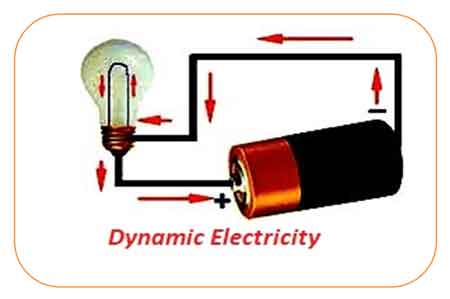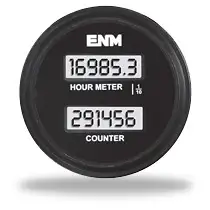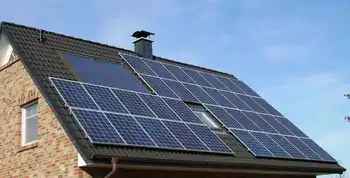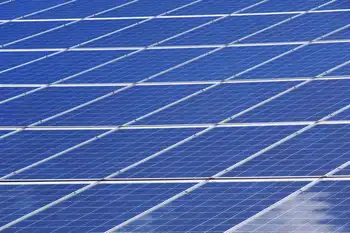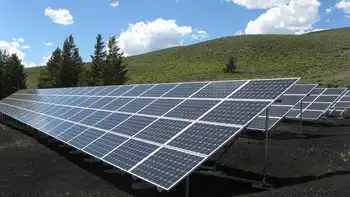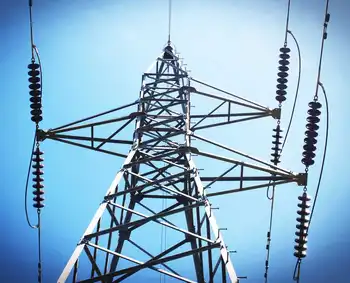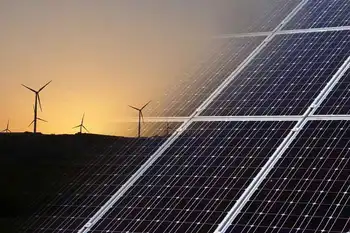Canada unveils plan for regulating offshore wind
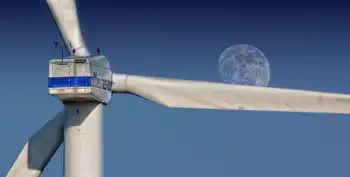
Substation Relay Protection Training
Our customized live online or in‑person group training can be delivered to your staff at your location.

- Live Online
- 12 hours Instructor-led
- Group Training Available
Canada Offshore Wind Amendments streamline offshore energy regulators in Nova Scotia and Newfoundland and Labrador, enabling green hydrogen, submerged land licences, regional assessments, MPAs standards, while raising fisheries compensation, navigation, and Indigenous consultation considerations.
Key Points
Reforms assign offshore wind to joint regulators, enable seabed licensing, and address fisheries and Indigenous issues.
✅ Assigns wind oversight to Canada-NS and Canada-NL offshore regulators
✅ Introduces single submerged land licence and regional assessments
✅ Addresses fisheries, navigation, MPAs, and Indigenous consultation
Canada's offshore accords with Nova Scotia and Newfoundland and Labrador are being updated to promote development of offshore wind farms, but it's not clear yet whether any compensation will be paid to fishermen displaced by wind farms.
Amendments introduced Tuesday in Ottawa by the federal government assign regulatory authority for wind power to jointly managed offshore boards — now renamed the Canada-Nova Scotia Offshore Energy Regulator and Canada-Newfoundland and Labrador Offshore Energy Regulator.
Previously the boards regulated only offshore oil and gas projects.
The industry association promoting offshore wind development, Marine Renewables Canada, called the changes a crucial step.
"The tabling of the accord act amendments marks the beginning of, really, a new industry, one that can play a significant role in our clean energy future," said Lisen Bassett, a spokesperson for Marine Renewables Canada.
Nova Scotia's lone member of the federal cabinet, Immigration Minister Sean Fraser, also talked up prospects at a news conference in Ottawa.
'We have lots of water'
"The potential that we have, particularly when it comes to offshore wind and hydrogen is extraordinary," said Fraser.
"There are real projects, like Vineyard Wind, with real investors talking about real jobs."
Sharing the stage with assembled Liberal MPs from Nova Scotia and Newfoundland and Labrador was Nova Scotia Environment Minister Tim Halman, representing a Progressive Conservative government in Halifax.
"If you've ever visited us or Newfoundland, you know we have lots of water, you know we have lots of wind, and we're gearing up to take advantage of those natural resources in a clean, sustainable way. We're paving the way for projects such as offshore wind, tidal energy in Nova Scotia, and green hydrogen production," said Halman.
Before a call for bids is issued, authorities will identify areas suitable for development, conservation or fishing.
The legislation does not outline compensation to fishermen excluded from offshore areas because of wind farm approvals.
Regional assessments
Federal officials said potential conflicts can be addressed in regional assessments underway in both provinces.
Minister of Natural Resources of Canada Jonathan Wilkinson said fisheries and navigation issues will have to be dealt with.
"Those are things that will have to be addressed in the context of each potential project. But the idea is obviously to ensure that those impacts are not significant," Wilkinson said.
Speaking after the event, Christine Bonnell-Eisnor, chair of what is still called the Canada Nova Scotia Offshore Petroleum Board, said what compensation — if any — will be paid to fishermen has yet to be determined.
"It is a question that we're asking as well. Governments are setting the policy and what terms and conditions would be associated with a sea bed licence. That is a question governments are working on and what compensation would look like for fishers."
Scott Tessier, who chairs the Newfoundland Board, added "the experience has been the same next door in Nova Scotia, the petroleum sector and the fishing sector have an excellent history of cooperation and communication and I don't expect it look any different for offshore renewable energy projects."
Nova Scotia in a hurry to get going
The legislation says the offshore regulator would promote compensation schemes developed by industry and fishing groups linked to fishing gear.
Nova Scotia is in a hurry to get going.
The Houston government has set a target of issuing five gigawatts of licences for offshore wind by 2030, with leasing starting in 2025, reflecting momentum in the U.S. offshore wind market as well. It is intended largely for green hydrogen production. That's almost twice the province's peak electricity demand in winter, which is 2.2 gigawatts.
The amendments will streamline seabed approvals by creating a single "submerged land" licence, echoing B.C.'s streamlined process for clean energy projects, instead of the exploration, significant discovery and production licences used for petroleum development.
Federal and provincial ministers will issue calls for bids and approve licences, akin to BOEM lease requests seen in the U.S. market.
The amendments will ensure Marine Protected Area's (MPAs) standards apply in all offshore areas governed by the regulations.
Marine protected areas
Wilkinson suggested, but declined, three times to explicitly state that offshore wind farms would be excluded from within Marine Protected Areas.
After this story was initially published on Tuesday, Natural Resources Canada sent CBC a statement indicating offshore wind farms may be permitted inside MPAs.
Spokesperson Barre Campbell noted that all MPAs established in Canada after April 25, 2019, will be subject to the Department of Fisheries and Oceans new standards that prohibit key industrial activities, including oil and gas exploration, development and production.
"Offshore renewable energy activities and infrastructure are not key industrial activities," Campbell said in a statement.
"Other activities may be prohibited, however, if they are not consistent with the conservation objectives that are established by the relevant department that has or that will establish a marine protected area."
Federal impact assessment process
The new federal impact assessment process will apply in offshore energy development, and recent legal rulings such as the Cornwall wind farm decision highlight how courts can influence project timelines.
For petroleum projects, future significant discovery licences will be limited to 25 years replacing the current indefinite term.
Existing significant discovery licences have been an ongoing exception and are not subject to the 25-year limit. Both offshore energy regulators will be given the authority to fulfil the Crown's duty to consult with Indigenous peoples






